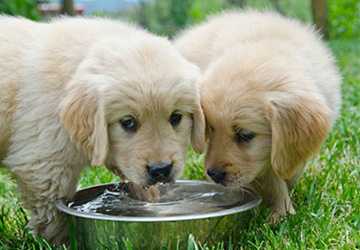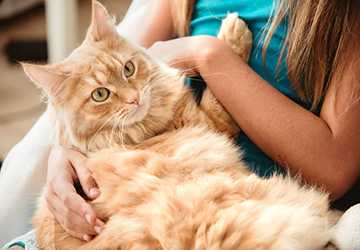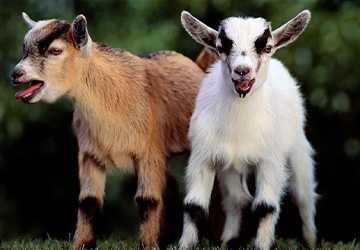How to Manage Your Pet’s Diet: Nutritional Balance Tips
Our pets are not just animals; they're beloved members of our families. We want the best for them, and one critical aspect of their well-being is their diet. Proper nutrition is essential to keep your furry friend happy and healthy. Like humans, a well-balanced diet is the cornerstone of your pet's overall health. But managing your pet's diet can be complicated, especially with many available options. To help you navigate this crucial aspect of pet care, we've compiled five top tips for maintaining a nutritional balance in your pet's diet.

Consult with a Veterinarian
The first and most vital step in managing your pet's diet is to consult a veterinarian. As you would see a doctor for your health concerns, your pet's health relies on regular check-ups with a qualified vet. They can provide personalized recommendations on your pet's specific dietary needs based on age, breed, activity level, and any existing health conditions.Vets are well-versed in the dietary requirements of different animals. For example, dogs and cats have different nutritional needs. Dogs are omnivores, requiring a balanced diet of protein, carbohydrates, and essential vitamins and minerals. On the other hand, cats are obligate carnivores, meaning they need a higher protein content in their diets. Your veterinarian can provide a detailed dietary plan based on these factors, ensuring your pet's nutritional balance.
Additionally, your vet can identify any allergies or sensitivities your pet might have. Some animals are intolerant to certain ingredients, such as grains or specific proteins. Identifying and avoiding these allergens is crucial to maintaining your pet's well-being.
Choose High-Quality Pet Food
Once you have consulted your vet and better understand your pet's specific dietary needs, it's time to select the right pet food. High-quality pet food is essential to maintaining a balanced diet. Look for brands that prioritize whole, natural ingredients and avoid fillers like corn and artificial additives. Reading labels is crucial. The first few ingredients listed on the label are the most important, as they make up most of the food.
Opt for pet food that lists real meat, poultry, or fish as the primary ingredient. Avoid vague labels like "meat by-products" or "animal digest." These can contain low-quality and indeterminate sources of protein. Additionally, consider brands that provide a variety of formulas designed for different life stages, such as puppy, adult, or senior.Regarding pet food, it's essential to balance convenience and nutrition. While homemade diets are an option, they can be challenging regarding nutritional balance, so consulting with your vet is crucial if you choose this route.
Portion Control
Portion control is often an overlooked aspect of managing your pet's diet. Feeding your pet the right amount of food is as important as providing the correct type of food. Overfeeding can lead to obesity, which comes with various health issues like joint problems and diabetes. On the other hand, underfeeding can lead to malnutrition and other health complications.Follow the feeding guidelines on your pet's food packaging as a starting point. However, remember that these are general recommendations and may not be suitable for every pet. Your veterinarian can help you determine the ideal portion size based on your pet's age, activity level, and overall health.
Establish a feeding routine to maintain nutritional balance and manage portion control. Be mindful of your pet's calories, and consider using measuring cups to ensure accuracy. As your pet ages or if their activity level changes, consult your vet to adjust their portion sizes accordingly.

Provide Fresh Water
Alongside the right food and portion control, water is essential to your pet's diet. Fresh, clean water should be available to your pet at all times. Proper hydration is critical for digestion, nutrient absorption, and overall health.Some pets are picky about their water source, and providing a clean bowl of water daily is only sometimes enough. To encourage your pet to drink more water, consider using a water fountain, which can be more appealing to cats. Regularly clean and refill the water bowl to prevent any contamination.
If you notice your pet isn't drinking enough water, consult your vet, as it could be a sign of an underlying health issue. Your vet can advise increasing your pet's water intake or providing additional fluids.
Monitor Your Pet's Health
Finally, regularly monitoring your pet's health is essential to ensure their diet meets their needs. Keep an eye on their weight, as sudden changes can indicate underlying health problems or an imbalanced diet. Regularly inspect their coat and skin and look for any issues.Please pay attention to their energy levels and behaviour. An active and playful pet is generally a healthy one. If you notice changes in their behaviour, such as lethargy, changes in appetite, or excessive thirst, consult your vet promptly. These can be indicators of health concerns that may require dietary adjustments.
Introduce Variety in Moderation
While consistency is crucial in your pet's diet, a little variety can be beneficial, but it should be introduced in moderation. Offering your pet a diverse range of foods can help prevent dietary boredom and provide them with a broader spectrum of nutrients. However, abrupt changes in your pet's diet can lead to digestive issues, so making any dietary transitions gradual is essential.
You can introduce variety by occasionally adding safe and healthy human foods to your pet's diet, such as small bits of lean meat, vegetables, or fruits. Ensure that any human food you introduce is pet-safe, as some can be toxic to animals. Your vet can guide you on the right choices. Additionally, consider rotating between different flavours or types of commercial pet food from the same reputable brand to add a touch of variety without upsetting your pet's digestive system.Remember that balance is critical; stay moderate with variety, as tracking your pet's nutritional intake can be challenging. Consult your veterinarian to determine the best approach to introducing variety into your pet's diet.
Conclusion
Managing your pet's diet is a vital aspect of responsible pet ownership. To maintain a nutritional balance in your pet's diet, consult a veterinarian, choose high-quality pet food, control portion sizes, provide fresh water, and monitor your pet's health regularly. Your furry friend's well-being depends on the care and attention you invest in their diet. By following these top tips, you can ensure your pet leads a healthy and happy life surrounded by your love and care.







